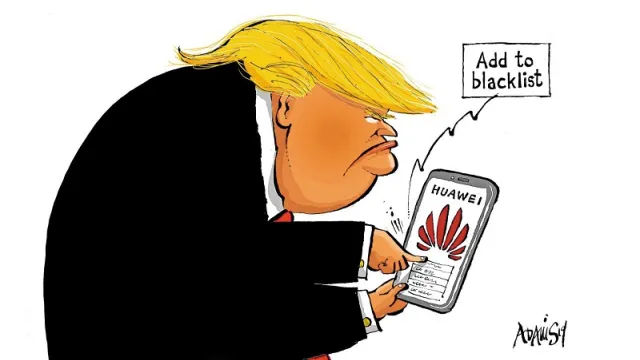OPINION: Restriction on the use of U.S Technology and its impact on the tech ecosystem

OPINION: Restriction on the use of U.S Technology and its impact on the tech ecosystem
Day by day, our lives become more digital. We use digital technology in everything from cooking to communications. As the world moves towards smart cities and the internet of things, demand for smart technology is increasing. More companies are bracing themselves for this opportunity and the future will see more collaborations and licensing of technology by various players in the ecosystem.
There are restrictions imposed by the US government that will bring change to the supply chain for technology products. Under the restrictions, the focus is more on semi-conductor and software business.
They essentially restrict US companies and its affiliates anywhere in the world -especially in EU, UK, Korea, Japan - from easily re-supplying some entities with products and software that has any US components. This decision has a wide-reaching impact on products that are in development or even those that are already in the hands of consumers.
The debate however is whether the restrictions are entirely due to security reasons. An argument put forth is that vulnerability argument fades when juxtaposed with the race for technological advancements where it could be perceived that the restrictions seem geared instead at slowing down the pace of technological development by countries or companies seen as competitors.
Some of these companies have proven track records from operating in over 170 countries for over 30 years. The restrictions seem to target the current global leader in telecommunications infrastructure such as 5G and is now poised to become a leader in other emerging technologies such as cloud and AI. The decision will have adverse impacts on the technology supply chain.
Within the next five years, 5G global territory and application dominance will be determined. The question is whether, within this window, the United States and our allies can mount sufficient competition to Huawei to retain and capture enough market share to sustain the kind of long-term and robust competitive position necessary to avoid surrendering dominance to China. The time is very short, and we and our allies have to act quickly.
The action taken is a departure from the best practice, pioneered by the creators of the Internet ecosystem which by design sought to develop an open ecosystem based around common standards. The earlier approach would enable anyone to join the ecosystem and interact with other parts of the ecosystem.
Many African countries like Ethiopia, Kenya and Rwanda are working towards being technology manufacturing powerhouses. They would benefit greatly from technology sharing and the promise which tremendous growth in the technology sector offers in those countries especially job creation.
The current restrictions will definitely have an impact on the partnerships that they would need to get into to facilitate their dive into technology production.
An attempt to control who can use what technology and who can work with which partners instead of leaving it to the forces of supply and demand goes against the principles of an open ecosystem and is likely to slow down the whole innovation ecosystem. Many other companies are wondering if in the future they might also be affected by similar regulations, and thus they are planning to avoid US suppliers, instead favoring European or Asian ones.
If anything it will lead up to the splitting of the innovation space where two or more centres of innovations emerge with independent products that have no intention of inter-operating with each other.
The result is that the consumer will suffer, because their ability to switch, mix and match products from different suppliers will disappear, while the cost of being forced to choose and stick to one line of products will also increase – given the monopolistic realities that will emerge.
If products cannot talk to each other easily, or if they end up using different standards, or if supply chains get fractured, and there is no trust left in the ecosystem, it will also make the internet less secure.
It is important to ensure that trade barriers do not hamper the advancements in technology. No country or entity has a monopoly in knowhow and it is imperative to ensure continued collaboration for the sake of development especially in these uncertain times where we are plagued by the COVID-19 pandemic.
One thing this COVID-19 period has proven to us is that more than ever we shall continue to be dependent on technology for the development of what will be the new normal. We are now working from home, trying to educate our children from home, using internet based solutions for our transport and shopping. Our need for improved technology has increased exponentially throughout the globe in the past few months since the pandemic struck.
This is the wrong time to be creating barriers to technological development, especially where technological interdependence has previously played a critical role in technological advancements. We urgently need to lower costs and to accelerate technology deployment in Africa. We need to be able to choose whichever technologies and companies we like to buy from or to sell to.
John Walubengo is a Lecturer and a Member of the National Taskforce on Blockchain & Artificial Intelligence. Email: [email protected]



